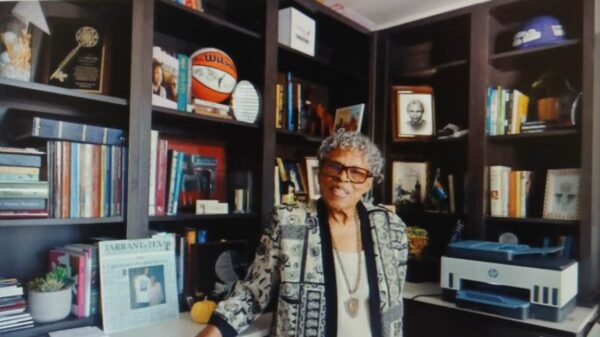By Sa’uda Dunlap
Quintessential New York City summers include sitting on the front stoop, sidewalk BBQs, listening to the latest songs at the highest decibels, Mr. Softy’s creeping up the block, jumping double Dutch, riding bikes with no real destination, music, arts and food festivals that transport us to a profound level of joy. It’s the joy you want to bubble wrap to show that it should be handled carefully. Finding and sustaining happiness during times of profound pain is a revolutionary act. Joy is powerful! It lifts our spirits, energizes us, and enhances our sense of meaning and purpose. Deciding to center joy, particularly Black joy, is centering Black humanity.
Juneteenth, the June 19 commemoration, is when some 2,000 Union troops arrived in Galveston Bay, Texas, to announce that more than 250,000 enslaved Black people in the state were free by executive decree (National Museum of African American Culture and History). Celebrations were marked by singing spirituals, prayers and clothing of their choice to signify their newfound freedom. Subsequent years of celebrations expanded outside of Texas, and in 2021, Juneteenth became a national holiday.
These celebrations are important because they acknowledge sustained progress while actively navigating the trauma of oppressive systems. Celebrations are deeply rooted in collective support and involve creating safe spaces where people can share their experiences and engage in collective healing practices. This can include rites of passage ceremonies, healing circles, and culturally rooted rituals such as ancestral reverence and storytelling. Juneteenth is foundationally rooted in joy because formerly enslaved people were able to imagine a world where chains did not bind their descendants. They celebrated the possibilities of themselves. Their imaginations became driving forces to amplify the importance of celebrating the beauty, creativity, and humanity within Black culture. Studies have shown that family support, spirituality, and collective healing are protective factors in reducing mental health conditions.
The enduring triumphs of Black people in this country, as highlighted by the historical legacy of Juneteenth, emphasize the importance of honoring their contributions, despite the rising legislative efforts aimed at erasing them. My maternal grandmother belonged to the second wave of the Great Migration during the 1960s. Alongside her three children, including my mother, she escaped the racial terror of Jim Crow South Carolina. She settled in Brooklyn, NY, in search of safety and respite from systemic racial violence. Despite her hardship throughout her journey, she never relinquished her dignity or humanity during those trying times. Understanding the importance of fostering healing, she made it a priority to create uplifting moments. Some of my most beloved childhood memories revolve around the joy she carefully curated. Whether it was her homemade ice cream, tasty cakes, or memorable Sunday dinners, these cherished traditions acted as protective factors that nourished and sustained me. They are reminiscent of quintessential NYC summers that are embedded in my soul.
Sa’uda Dunlap, LCSW, assistant vice president of Equity & Belonging at Vibrant Emotional Health. In her role, Sa’uda leads a team with the ongoing establishment of an equity framework for Vibrant, which includes the 988 Suicide & Crisis Lifeline.

You must be logged in to post a comment Login